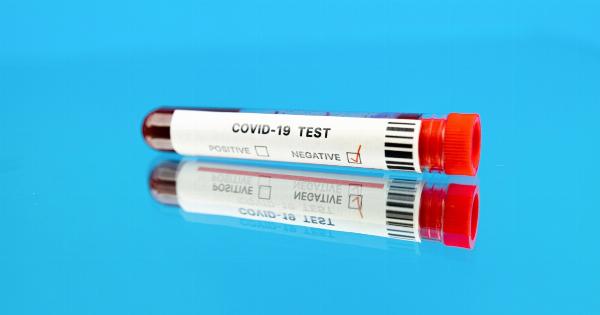The Middle East Respiratory Syndrome (MERS) virus is a serious illness that can cause severe respiratory symptoms. It is caused by a type of coronavirus that was first identified in Saudi Arabia in 2012.
Since then, there have been outbreaks of MERS in multiple countries in the Middle East and Asia, as well as in Europe and the United States. While the risk of contracting MERS in the general population is still considered low, it is important to know how to prevent the spread of the virus.
What is MERS?
MERS is a respiratory illness caused by the MERS coronavirus (MERS-CoV). The virus was first identified in Saudi Arabia in 2012 and has since spread to multiple countries in the Middle East and Asia, as well as to Europe and the United States.
MERS-CoV is similar to the SARS coronavirus, which caused a global outbreak in 2003. While the majority of MERS cases have occurred in the Middle East, a small number of cases have been reported in the United States and Europe from travelers returning from the affected regions.
How is MERS Spread?
MERS-CoV is spread from person to person through close contact with an infected individual. This can occur when an infected person coughs or sneezes, releasing respiratory droplets into the air.
Direct contact with an infected person’s bodily fluids, such as saliva, sputum, or blood, can also transmit the virus. In some cases, MERS has been transmitted from infected animals, such as camels, to humans.
Who is at Risk for MERS?
The majority of MERS cases have occurred in individuals living in or traveling to the Middle East.
Healthcare workers, family members and close contacts of infected individuals, and individuals with underlying health conditions, such as diabetes or chronic respiratory disease, are at higher risk for contracting MERS.
How to Prevent the Spread of MERS
Preventing the spread of MERS is important to protect individuals who are at higher risk for severe illness from the virus. The following are tips to help prevent the spread of MERS:.
1. Wash Your Hands
Washing your hands frequently with soap and water for at least 20 seconds is one of the most effective ways to prevent the spread of MERS.
Make sure to wash your hands before and after eating, using the restroom, and after being in contact with an infected individual or their belongings.
2. Avoid Touching Your Face
MERS can enter your body through your nose, mouth, or eyes, so it is important to avoid touching your face, especially if you haven’t washed your hands recently.
Try to avoid rubbing your eyes, picking your nose, or putting your hands in your mouth.
3. Cover Your Mouth and Nose
If you need to sneeze or cough, make sure to cover your mouth and nose with a tissue or your sleeve. This will help prevent respiratory droplets from spreading in the air. Make sure to dispose of used tissues and wash your hands afterwards.
4. Avoid Close Contact with Infected Individuals
If you are in close contact with someone who has a confirmed or suspected case of MERS, it is important to take precautions to prevent the spread of the virus.
Make sure to wear a mask, gloves, and protective clothing if available, and avoid sharing personal items, such as utensils or towels.
5. Stay Home If You’re Sick
If you are feeling unwell or have symptoms of MERS, such as fever, cough, or difficulty breathing, it is important to stay home and seek medical attention. This will help prevent the spread of the virus to others.
6. Practice Good Respiratory Hygiene
Practicing good respiratory hygiene can help prevent the spread of MERS. This includes covering your mouth and nose when coughing or sneezing, using tissues when possible, and avoiding close contact with others who are sick.
7. Avoid Travel to Affected Areas
Travelers to the Middle East or other areas where there have been outbreaks of MERS should take extra precautions to avoid exposure to the virus.
If possible, avoid contact with animals, such as camels, and avoid close contact with individuals who are sick.
8. Stay Informed
Staying informed about the MERS virus and its spread can help you take steps to prevent exposure and spread.
Keep up-to-date with the latest news from reliable sources, such as the Centers for Disease Control and Prevention (CDC) or the World Health Organization (WHO).
Conclusion
MERS is a serious illness that can cause severe respiratory symptoms. While the risk of contracting MERS is still considered low in the general population, it is important to take precautions to prevent the spread of the virus.
Washing your hands frequently, avoiding close contact with infected individuals, and practicing good respiratory hygiene are all effective ways to prevent the spread of MERS. If you are feeling unwell or have symptoms of MERS, seek medical attention and stay home to prevent the spread of the virus.



























